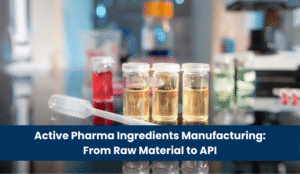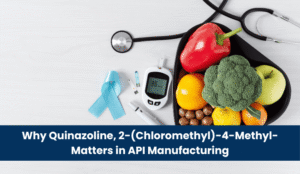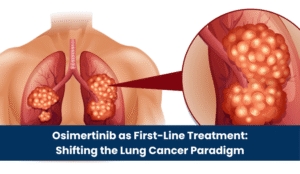Consider a world where your medicine is not only developed based on the needs of the average patient, but it is also tailored to your specifications. That is the potential of personalised medicine, treatments tailored to the genetic constitution of the patient, their lifestyle, and the nature of their disease. It is revolutionising healthcare by moving it away from a one-size-fits-all basis to hyper-precision. But this revolution doesn’t just happen in the clinic; it fundamentally reshapes the factory floor. The journey from discovery to delivery demands unprecedented agility in pharmaceutical manufacturing.
What Is Personalised Medicine?
Gone are the days of treating everyone with Condition X in the same way. Personalised medicine leverages insights from genomics, biomarkers, and diagnostics to predict which treatments will be most effective for which patients, and at what dose. Think of it like getting a suit custom-tailored instead of buying off the rack. It means fewer side effects, better outcomes, and treatments that work the first time. This shift isn’t just scientific progress; it’s a more empathetic, patient-centric future. But how do we translate this intricate precision into tangible pills or therapies? That’s where the manufacturing challenge begins.
Traditional vs. Personalised Drug Manufacturing
Traditional pharmaceutical manufacturing is built for scale and uniformity. Picture vast production lines churning out millions of identical tablets. Efficiency and consistency are kings. Now, consider the contrast with custom drug production for personalised medicine. Here, batches might be tiny, sometimes even for a single patient. We may discuss specific formulations, unique dosages, or therapies that incorporate a patient’s cells. This requires a seismic shift:
Scale
Moving beyond massive, uniform batches, personalised medicine demands producing “mini-batches” or single-patient doses. This shift requires pharmaceutical manufacturing to abandon traditional economies of scale. Facilities must adapt to efficiently handle small volumes without sacrificing quality or viability, placing new demands on active pharmaceutical ingredient manufacturers to supply appropriately sized quantities of api raw material for viable custom drug production.
Complexity
Personalised medicine introduces immense formulation diversity – unique dosages, combinations, or patient-specific biologics. Pharmaceutical ingredients manufacturers face a vastly wider array of api raw material specifications and purity requirements. Handling this intricate variability within api manufacturing processes, while ensuring stringent quality for every small batch, significantly increases the operational complexity compared to standard custom drug production lines.
Speed
Time is critical in personalised medicine. Pharmaceutical manufacturing must drastically accelerate turnaround, from receiving patient-specific data to delivering the bespoke therapy. Custom drug production for these therapies prioritises rapid processing, swift quality checks, and expedited logistics. This demands highly responsive systems from active pharmaceutical ingredient companies through to final product assembly, ensuring patients receive their tailored treatments when needed most.
This evolution places immense pressure on manufacturers of active pharmaceutical ingredients and the entire supply chain. The rigid systems of the past simply won’t suffice.
Challenges to Manufacturing Flexibility
Adapting to custom drug production presents its own set of challenges. Key challenges include:
- Supply Chain Agility: Sourcing diverse, high-purity api raw material in smaller quantities, often with very specific characteristics, requires robust and flexible supplier networks. Active pharmaceutical ingredient companies need to be highly responsive.
- Process Reconfiguration: Rapidly switching production lines between different products or small batches requires modular equipment and adaptable processes. Traditional large-scale api manufacturing setups struggle here.
- Quality Control & Regulation: Ensuring consistent, uncompromised quality across numerous tiny, unique batches is complex. Regulatory frameworks are evolving, but they add another layer of scrutiny for pharmaceutical ingredient manufacturers.
- Cost & Complexity: Although we refrain from providing specific numbers, the inherent complexity of managing numerous small-scale processes presents significant operational challenges for any API manufacturer. The shift needs significant investment in new technologies and expertise.
The Role of Data and AI in Personalised Production
So, how do we overcome these hurdles? Enter data and Artificial Intelligence (AI). They are the linchpins enabling flexible pharmaceutical manufacturing for personalised medicine:
- Predictive Planning: AI algorithms can forecast demand for specific therapies, optimizing api raw material procurement and production scheduling for active pharmaceutical ingredient manufacturers.
- Process Optimisation: Real-time data analytics can monitor and adjust api manufacturing parameters on the fly, ensuring quality even for highly variable small batches.
- Advanced Process Control: AI can manage complex custom drug production lines, automating changeovers and minimising downtime between different product runs.
- Quality by Design (QbD): Integrating data throughout development and API manufacturing enables the direct incorporation of quality into the process, which is crucial for addressing the variability inherent in personalised therapies.
This data-driven approach transforms pharmaceutical ingredient manufacturers from rigid producers to agile, intelligent partners in the personalised healthcare journey.
Future Outlook: Scalable Personalisation
The future isn’t about choosing between scale and personalisation; it’s about achieving both – scalable personalisation. We’re moving towards:
- Modular Facilities: “Plug-and-play” manufacturing units that can be easily reconfigured for different custom drug production needs.
- Advanced Continuous Manufacturing: Moving away from batch processing to continuous flow, ideal for smaller volumes and offering greater control – a boon for api manufacturing.
- Distributed Manufacturing: Smaller, localised production hubs closer to patient populations, reducing logistics hurdles for specialised therapies. This demands a network of highly capable active pharmaceutical ingredient companies and API manufacturer partners.
- Standardisation within Customisation: Developing standardised platforms or “building blocks” (such as specific API raw material intermediates) that can be efficiently combined to create diverse, personalised final products.
The goal is a responsive ecosystem where pharmaceutical manufacturing adapts seamlessly to deliver the right precision treatment, at the right time, for every patient.
Bridging Precision with Agility
The rise of personalised medicine is a testament to medical progress, offering hope for more effective and compassionate care. However, its true potential can only be unlocked if the manufacturing backbone evolves with equal innovation. Bridging the gap between precise medical science and agile production is the critical challenge of our time. It demands flexible pharmaceutical ingredients manufacturers, adaptable api manufacturing processes, and resilient supply chains capable of handling the intricacies of custom drug production.
Companies at the forefront of supplying high-quality, reliable API raw materials and advanced manufacturing expertise, such as Bulat Pharmaceutical, play a pivotal role in this transformation. As trusted partners to innovators, Bulat Pharmaceutical understands the unique demands of this new era, supporting the development and production of next-generation, tailored therapies. The future of health is personal, and building the agile manufacturing foundation to support it is our shared imperative. Isn’t it time our production capabilities matched the sophistication of our treatments?






